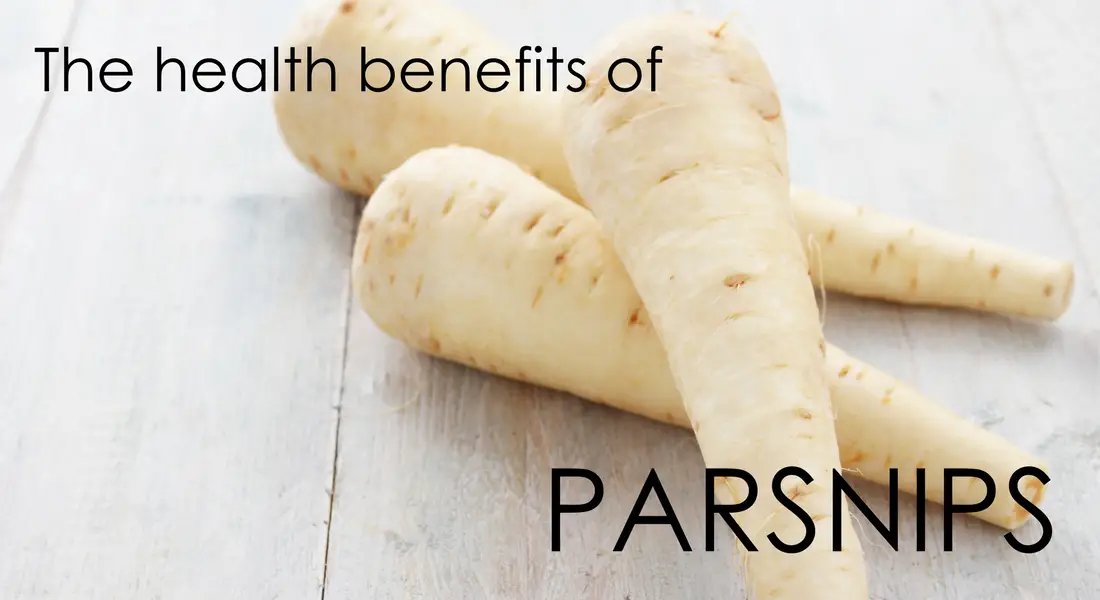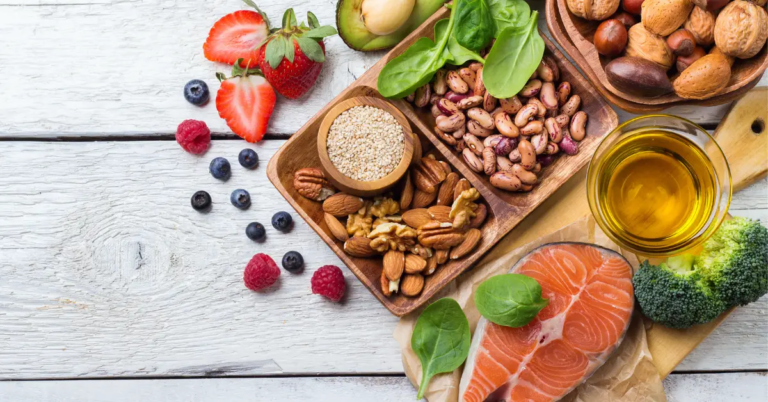Parsnips are closely related to the carrot and parsley. The parsnip is native to Eurasia. Since antiquity, the Romans cultivated it as a vegetable. It was used as a sweetener before cane sugar came to Europe. It was brought to the United States from Europe in the 19th century.
Parsnip Nutrition Facts
Parsnips are high in many crucial nutrients, including fiber, vitamins, and minerals. Parsnips are especially rich in vitamin C, K, and folate, as well as several other vital micronutrients. The following are the nutritional benefits of parsnips (based on one cup or 133 grams).
- 100 grams of calories
- 24 grams of carbohydrates
- 6.5 grams of fiber
- 1.5 grams of protein
- 0.5 grams of fat
- It contains 25% of the Reference Daily Intake (RDI) of vitamin C
- Includes 25% of the recommended RDI of vitamin K
- It has 22% of the recommended RDI of folate
- Includes 13% of the recommended RDI of vitamin E
- Contains 10% of the recommended RDI of magnesium
- Contains 10% of the recommended RDI of thiamine
- Has 8% of the recommended RDI of phosphorus
Besides the nutrients listed above, parsnips also contain folate and thiamine.
Health Benefits of Parsnips
Fiber and vitamins are abundant in parsnips. They have a sweet flavor and can be eaten cooked or raw. Here are some surprising health benefits of parsnips.
Parsnips are Full of Fiber
Many fibers, especially soluble fiber, are found in parsnips. Soluble fiber is known to help reduce cholesterol levels which boosts heart health. Soluble fiber is also beneficial in lowering the risk of developing diabetes. The fiber found in parsnips can also help the digestive process by facilitating the healthy movement of food through the digestive tract, helping to reduce the risk of constipation and prevent other gastrointestinal disorders.
Parsnips are Good for the Immune System
Studies show that parsnip contains antioxidant vitamins and organic compounds that protect the body from foreign invaders. Plus, they protect the body from toxic byproducts our cellular metabolism produces. Parsnips have vitamin C and E, which act as antioxidants in the body and help neutralize or eliminate free radicals that cause chronic diseases, including cancer. Vitamin C also increases the production of white blood cells, which attack the illness and foreign microbes in the body. White blood cells also help produce collagen, a building block of the body.
Parsnips Contain Folates
A half-cup of parsnips contains 11% of the daily folate requirement. Folates are essential to human health. Folates are critical to pregnant mothers and their developing babies. Recent research shows that expectant mothers need a higher folate intake to reduce the risk of having children with neural tubes and congenital disabilities such as cleft palate, spina bifida, and brain damage. Low folate levels also increase the risk of diarrhea, gingivitis, tongue inflammation, etc.
Parsnips are Great for Weight Loss
Nutritionists suggest adding parsnips to your diet if you want to lose weight or maintain weight. Parsnips are low calorie and high in fiber. Studies have found that parsnips help prevent the release of ghrelin, a “hunger” hormone. Without the release of ghrelin, you are less likely to snack between meals. Plus, the fiber helps optimize the digestive process, which means you can eliminate waste while getting the nutrient uptake in the proper condition.
Parsnips May Help With Osteoporosis
A single serving of parsnips contains nearly 35% of the daily allowance of manganese. Manganese is a trace element necessary for bone health. Research has shown that a mixture of zinc, copper, calcium, and manganese can help to slow the loss of spinal bone in post-menopausal women. Nutritionists suggest that mature women at a higher risk of suffering from osteoporosis can help prevent the disease by adding parsnips to their diet.
Parsnips May Improve Heart Health
Parsnips are high in potassium, which may help dilate blood vessels and lower blood pressure while reducing stress on the heart. This root vegetable is known for its highly folate-containing properties, which lower homocysteine levels in the blood, a biomarker linked to heart disease. The fiber present in this root vegetable may also aid in reducing cholesterol levels. As a result, these root vegetables might assist prevent stroke, atherosclerosis, and other heart problems.
Parsnips May Help Reduce Birth Defects
Parsnips are high in folate, which is essential for cell division and the formation of DNA. Vitamin B9 (folic acid) and folic acid are often used to prevent neural tube congenital disabilities, including cleft lip, palate, and spina bifida in newborns. A combination of veggies may also assist in increasing metabolic processes linked to energy production and the nervous system. Postpartum depression is also said to be alleviated by eating these vegetables.
Parsnips May Improve Oral Health
Parsnips contain vitamins C and folate, which might help promote oral health by preventing gingivitis, tongue inflammation, toothache, and foul breath. It can also aid in maintaining healthy connective tissue and gum tissue and developing strong teeth.
Parsnips Might Aid in Enzyme Production
Parsnips are a good source of manganese, an essential element in many enzyme activities in the body. As a result, they aid in the production of enzymes that support digestive health and repair, antioxidant activity, and wound healing.
Parsnips May Help in Digestion
Soluble dietary fiber in parsnips is essential to our digestive health. As a result, it may aid with the good transit of food through the digestive tract by decreasing constipation and preventing other gastrointestinal issues.
Parsnips May Enhance Vision
Ascorbic acid, also present in parsnip, has been shown to protect the eyes against various eye diseases, including age-related macular degeneration, which causes vision impairment in older individuals. The antioxidants in the vegetable may also protect the eyes from sun damage. It appears to be a very capable vegetable for eye health and vision improvement.
Parsnips are Easy to Add to Your Diet
Unlike carrots, parsnips have a sweet, earthy flavor. They can be mashed, roasted, sautéed, cooked, baked, grilled, or fried, adding a rich taste to many dishes.
You can easily substitute parsnips for carrots, potatoes, turnips, and rutabagas in your favorite recipes. You can also substitute different varieties of parsnips in various preparations.
Here are a few unusual ways to incorporate them into your diet:
- You can make a vegetarian shepherd’s pie by combining parsnips, mushrooms, and lentils.
- Mash some parsnips and mix with lemon and herbs.
- Create a parsnip gratin dish with feta, turmeric, and cumin.
- Toss your carrots with olive oil and spices before roasting them.
- Baked parsnip fries are a healthier alternative to regular French fries.
Discover more ways how you can include parsnips in your daily diet. Get a FREE copy of my Superfood Cookbook.
References:
- White Vegetables: A Forgotten Source of Nutrients: Purdue Roundtable Executive Summary – PMC (nih.gov)
- Dietary n-3 Fatty Acid, α-Tocopherol, Zinc, vitamin D, vitamin C, and β-carotene are Associated with Age-Related Macular Degeneration in Japan – PubMed (nih.gov)
- Antioxidants: In Depth | NCCIH (nih.gov)
- Free Radicals, Antioxidants in Disease and Health – PMC (nih.gov)
- Polyacetylenes from the Apiaceae vegetables carrot, celery, fennel, parsley, and parsnip and their cytotoxic activities – PubMed (nih.gov)
- Aliphatic C(17)-polyacetylenes of the falcarinol type as potential health promoting compounds in food plants of the Apiaceae family – PubMed (nih.gov)
- Health benefits of dietary fiber – PubMed (nih.gov)
- Effect of dietary fiber on constipation: A meta analysis – PMC (nih.gov)
- Effects of Dietary Fiber and Its Components on Metabolic Health – PMC (nih.gov)
- Cardiovascular benefits of dietary fiber – PubMed (nih.gov)
- Effects of dietary fiber intake on inflammation in chronic diseases – PubMed (nih.gov)
- Satiation, satiety and the action of fibre on food intake – PubMed (nih.gov)
- Dietary fiber and weight regulation – PubMed (nih.gov)
- Link between Food Energy Density and Body Weight Changes in Obese Adults – PubMed (nih.gov)
- Water incorporated into a food but not served with a food decreases energy intake in lean women – PubMed (nih.gov)



















